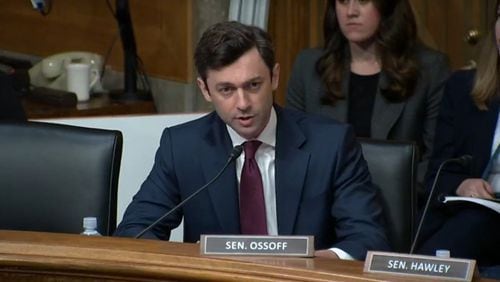MARTA’s board of directors had such concerns about leadership at the transit agency two years ago that it spent $144,000 for 13-month-long outside evaluation of General Manager Beverly Scott and her executive team.
The board in 2010 hired a Marietta firm, The Business Psychology Company, to scrutinize the way Scott and her top staff were operating during a tough stretch of budget woes, fare hikes and service cutbacks.
Former board chairman Michael Tyler, who supported the hiring, declined to comment on “personnel issues,” but said the consultant was a necessary expense to deal with a bad situation and create “harmonious relationships.”
“Certainly the goal was to improve the situation,” Tyler said Monday. “We were trying to achieve a better operational system and a more productive senior management team.”
Documents obtained by Channel 2 Action News said the objectives were the individual and team improvement of Scott and her top executives, with a goal of creating an environment that included a “high level of candor and trust” and the free flow of information and ideas.
MARTA told the television station it never received a written report from the firm about what it found or whether the goals were reached.
MARTA has long battled criticism of its management and spending, with state lawmakers especially critical. State Rep. Mike Jacobs, R-Atlanta, called the absence of a written evaluation from the Marietta consultant troubling.
“It’s a fairly extensive evaluation on an odd subject matter for which there appears to be no tangible result,” said Jacobs, who chairs the legislative committee that oversees MARTA. “I am going to ask questions about it. I would inquire into what was spent, how it was used and what the results were. I’m not going to prejudge the propriety of he expenditure but it certainly is questionable on its face.”
Michael Walls, another former board member who was there at the time, said he was aware of complaints but said the ones he heard dealt with meetings that took up too much staff time. He attributed the internal tension to the intense pressure MARTA was under from the Legislature, the media and riders because of funding shortfalls.
He said no one “in a serious way” ever directly to him questioned Scott’s competence or management ability. He declined to say what complaints other board members received.
“In that sort of environment, there were people getting upset with each other. That happened,” said Walls. “ I don’t think anybody questioned her ability to do her job.”
Scott, who is leaving at the end of the year, was recently hired to be the transit chief in Boston. One other finalist for the Boston job was Dwight Ferrell, MARTA chief operating officer and member of Scott’s executive team.
MARTA last week named Keith Parker, currently chief of the transit system in San Antonio, as Scott’s successor.
MARTA declined to make Scott available for an interview Monday.
A contract signed by Tyler and Terry Dockery, the president of the consulting company, listed as a main objective as evaluating the effectiveness of Scott’s management and discussing with her the effectiveness of her management “practices and style.”
Board member Jim Durrett, a current member, would not say what the consultant concluded about the management style or behavior of Scott, who made $370,000 last year, the television station reported.
Contracts showed $24,000 was to be paid to Dockery’s company in October 2010 for an initial assessment of MARTA leadership. The board agreed to pay the company and its minority partner, Optimism Matters, another $120,000.
“Interview feedback gathered from the Executive Management Team (EMT) and the board during September and November revealed numerous opportunities for performance improvement for Dr. Beverly Scott and the other members of the executive team,” the consulting group said in a November 2010 proposal to Tyler.
Current board Chairman Fred Daniels could not be reached Monday.
Jill Perry-Smith, an expert on organizational behavior at the Emory University, said businesses commonly hire outside consultants to try and determine what might be creating management problems, but such probes are generally are topical and not focused on the top executive.
“That is unusual,” she said. “It might suggest there is a problem with the leadership that needs to be addressed or it might suggest something else. It might send an unintended message that those commissioning it did not intend to send.”
About the Author





